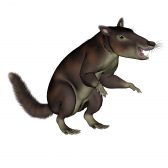Asp
(Science: botany) same as aspen. Trembling poplar or asp.
(Science: zoology) a small, hooded, poisonous serpent of egypt and adjacent countries, whose bite is often fatal. It is the Naja haje. The name is also applied to other poisonous serpents, especially. To vipera Aspis of southern Europe. See Haje.
Origin: L. Aspis, fr. Gr., cf. OF. Aspe, f. Aspic.
(Science: botany) One of several species of poplar bearing this name, especially the Populus tremula, so called from the trembling of its leaves, which move with the slightest impulse of the air.
Origin: as. Aesp, aeps; akin to OHG. Aspa, Icel. Osp, dan. Aesp, Sw. Asp, D. Esp, g. Espe, aspe, aspe; cf. Lettish apsa, lith. Apuszis.
Of southern Europe; similar to but smaller than the adder.Cobra used by the Pharaohs as a symbol of their power over life and death.Shorthand for aspartate, a common amino acid found in proteins.
Dictionary > Asp
You will also like...

Human Neurology
Human Neurology deals essentially with the nervous system of humans. It also features the various theories put forward b..

A Balanced Vitamin Diet – Vitamins A – K
A balanced diet is essential to a healthy organism. Insufficiency or too much of a particular element or compound, such ..

The Human Nervous System
The nervous system is essentially a biological information highway. This tutorial gives an overview of the nervous syste..

Leaves
Leaves are the major photosynthetic organ of a plant. Apart from that, they are also crucial to water movement. In this ..

Mammalian Ancestors
Mammals are a diverse group of organisms, where most of them develop their offspring within the uterus of the mother. Ov..

Homeostatic Mechanisms and Cellular Communication
Homeostasis is the relatively stable conditions of the internal environment that result from compensatory regulatory res..

